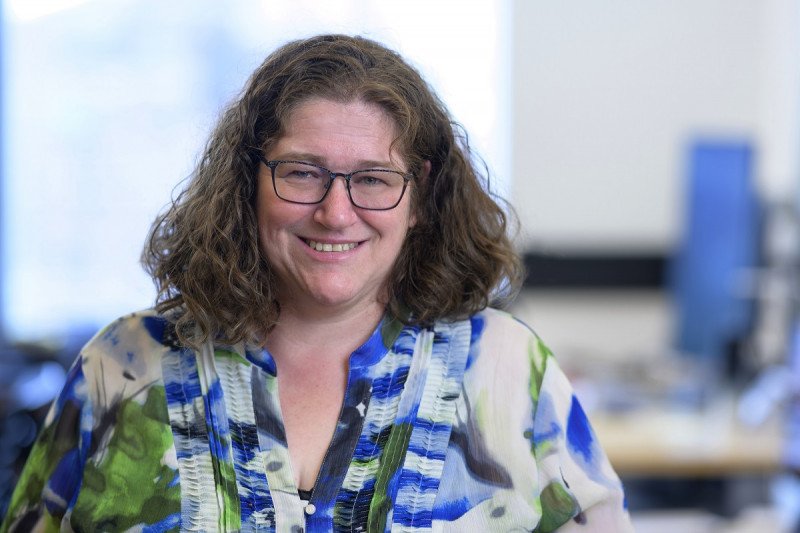
Dana Pe’er, PhD, computational biologist and lab head at Memorial Sloan Kettering Cancer Center’s (MSK) Sloan Kettering Institute (SKI), is one of 33 biomedical researchers named a Howard Hughes Medical Institute (HHMI) investigator today. The elite group of scientists, who were chosen from among more than 800 applicants, will each receive approximately $9 million over a seven-year term, which is renewable pending a scientific review. The scientists come from 21 institutions in the United States and will join a community of investigators who are tackling some of the most challenging problems in biomedical research.
“It is an honor to be selected as an HHMI Investigator. Receiving this distinction speaks to Dr. Pe’er’s leadership in the computational and systems biology space,” said Joan Massagué, PhD, Director, Sloan Kettering Institute. “She has already made valuable contributions in computational biology, and this award will help further her research in single-cell sequencing, molecular profiling, and data analysis.”
Established in 1953, the HHMI is a nonprofit medical research organization and one of the largest philanthropic organizations in the US. Committed to progressing basic biomedical research and science education, its scientists have made important discoveries that advance our fundamental understanding of biology.
“HHMI is committed to giving outstanding biomedical scientists the time, resources, and freedom they need to explore uncharted scientific territory,” says HHMI President Erin O’Shea. By employing scientists as HHMI Investigators, rather than awarding them research grants, she says, the Institute is guided by the principle of “people, not projects.”
About Dr. Dana Pe’er
Dr. Pe’er is a computational biologist who applies high-resolution molecular profiling technologies with novel computation to investigate questions in developmental biology, immunity, and cancer. Her interdisciplinary group develops approaches to analyze complex data gathered from cutting-edge technologies to ask questions centered around cellular plasticity, which is the ability of cells to adapt to new environments — and to understand how cells utilize such plasticity to create tissue form and function.
This approach has highlighted ways in which cancer cells misuse developmental pathways, which is important for understanding metastasis. Dr. Pe’er seeks to understand how the tissue environment influences an individual cell’s fate. Now, her lab is charting how cells organize themselves, and what happens when this goes awry.
She has received numerous awards and honors for her work, including Crain’s Notable Women in Health Care in 2019, the Ernst W. Bertner Memorial Award, University of Texas MD Anderson Cancer Center in 2019, NIH Director’s Pioneer Award in 2014, the ISCB Overton Prize in 2014, RECOMB 2012 Test of Time Award, SU2C AACR Innovator Award in 2010, Packard Fellowship in Science and Engineering in 2009; NIH Directors New Innovator Award in 2007, runner-up for “Breakthrough of the Year” by Science Magazine in 2005, and the Career Award at the Interface of Science, Burroughs Welcome Fund in 2005.
“I am delighted to be named a 2021 HHMI Investigator,” Dr. Pe’er said. “Having support from HHMI will allow me to follow my passion and explore creative ideas. If these projects succeed, they will lead to fundamental understanding of health and disease and can possibly lead to new ways to treat cancer.”
Dr. Pe’er earned a doctorate degree from Hebrew University, Jerusalem, Israel.
Scientific Experience
Dr. Pe’er, who joined Sloan Kettering Institute in 2016 is now among eight current HHMI investigators at MSK. The others are Christopher Lima, Scott Keeney, Scott Lowe, Nikola Pavletich, Alexander Rudensky, Charles Sawyers, and Jennifer Zallen. Both Joan Massagué and Craig Thompson are HHMI alumni.
